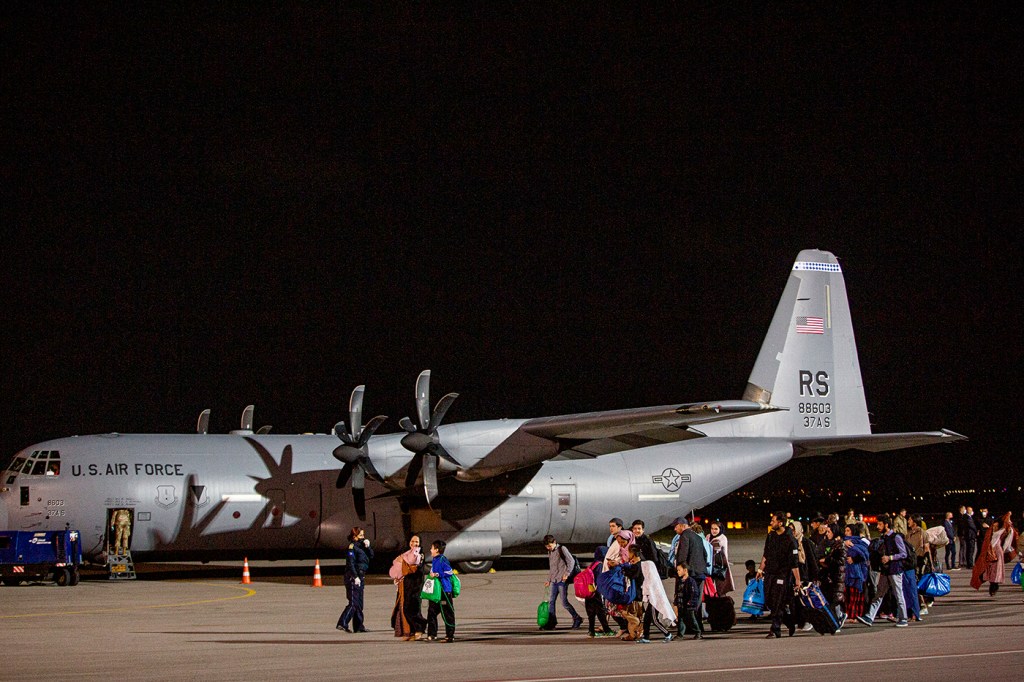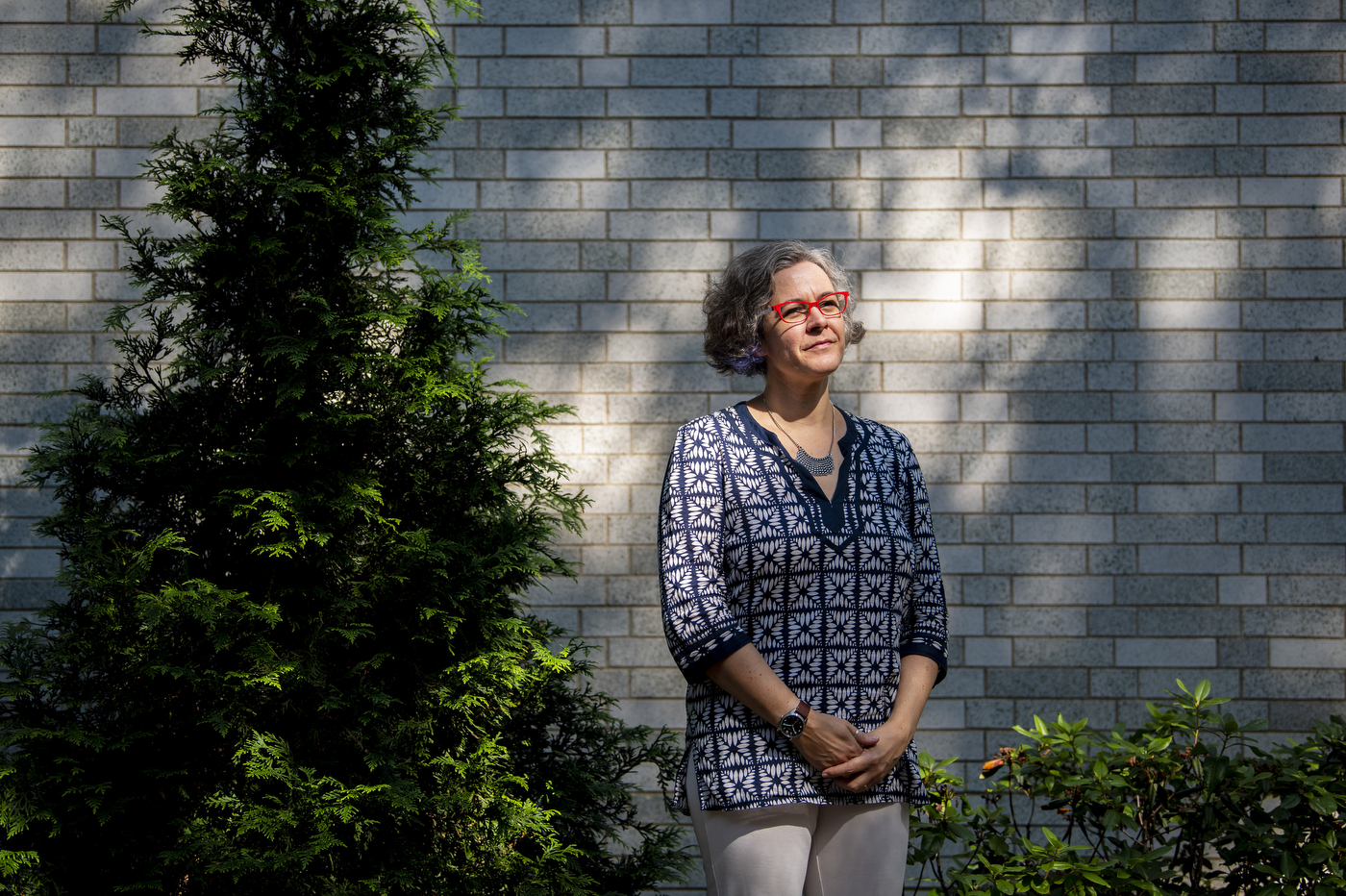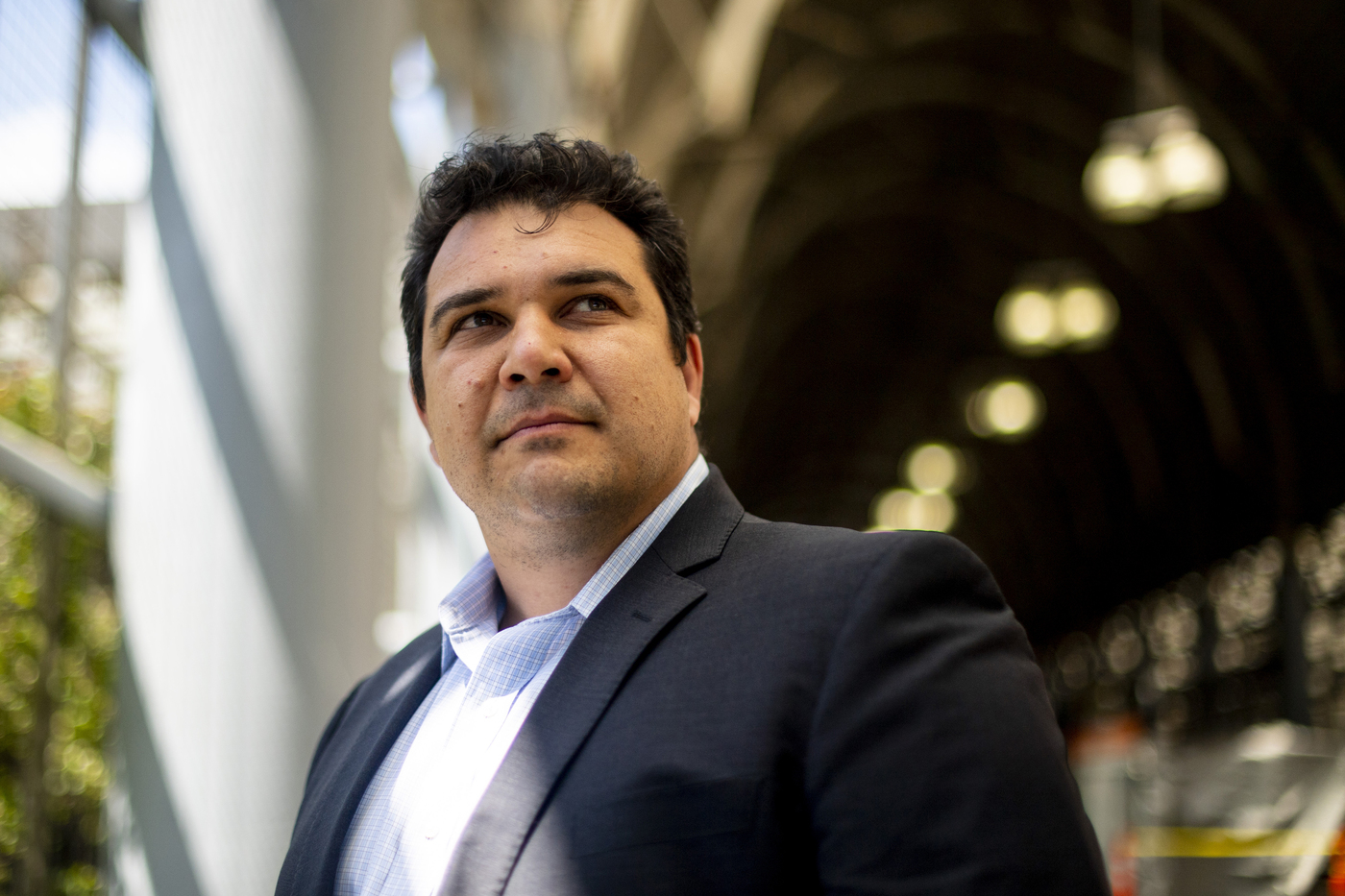Meet the law professor who helped refugees escape Afghanistan. Her work has just begun.

Alexandra (Xander) Meise was driving from Philadelphia to Boston en route to her new job as an associate teaching professor at Northeastern’s School of Law. The buzzing of her phone reminded her of more arduous journeys that were being attempted on the other side of the world. People she had never met were trying to flee Afghanistan, and she responded to the repeated buzzing by pulling over to do what she could to help them.
“What I was doing felt like a very small drop in the bucket,” says Meise, a longtime human rights advocate who in July was named the Truman Center for National Policy’s inaugural Visiting Senior Fellow for Climate and Energy Security. “But if I could do something positive to help, then I was going to do it.”

Meise was among the thousands of volunteers from military, legal, and other backgrounds to collaborate in the recent “Digital Dunkirk” movement to help people escape from Afghanistan before the U.S. withdrawal on Tuesday. Using computers and phones, volunteers contributed to an online version of the 1940 Dunkirk evacuations of Allied soldiers from the beaches of France during World War II.
“Having worked in the human rights space throughout my entire professional career, there is a feeling that what you do is never enough,” Meise says. “And yet you have to focus on what it is that you can do, and take the wins when you can get them.”
While she has not worked in Afghanistan, Meise has significant experience working in other areas transitioning their government systems and emerging from conflict, including in Yemen, Bosnia-Herzegovina, Cambodia, and Timor Leste.
Collaborating on Afghanistan efforts with fellow volunteers from the foreign policy, security, and humanitarian communities, she provided information that helped open doors for people who were seeking to leave the country, including identifying documents they might need to access the airport and gain entry on a flight out of Kabul.

Khusal Safi, associate director of public safety and security at Northeastern. Photo by Ruby Wallau/Northeastern University
From thousands of miles away, a coalition of volunteers used real-time information to guide people to airport entrances that were open and helped facilitate connecting evacuees with those organizing evacuation flights in an effort to ensure as many seats as possible were used.
Khushal Safi, who heads the international safety office at Northeastern and is an Afghan native, was a contributor to the “Digital Dunkirk” efforts.
“We were able to get some Afghans who supported ISAF [International Security Assistance Force] out,” says Safi, who worked in Afghanistan from 2009 to 2014 as a U.S. intelligence officer. “But some got left behind. We eagerly await guidance on other avenues out of Afghanistan from the U.S. government.”
The United States airlifted 123,000 people from Kabul airport in August, including 6,000 Americans—an extraordinary effort that nonetheless failed to rescue thousands of people who remain in need of evacuation.
“We also know of Afghans who still want to depart and need additional guidance on how to apply for travel visas,” adds Safi. “In particular, Northeastern hopes to sponsor Afghan scholars, and we need the means to properly document these persons to work or study in the U.S.”
Meise plans to assist with these types of efforts.
“This is not over,” she says. “This is the turning of a page. Everyone who has been involved in this effort is saying the same thing: That we are not going to walk away from those that we have been helping.”
Meise and other volunteers will continue to push for the evacuation of those in Afghanistan who are threatened by the Taliban. She is also working to support the tens of thousands of refugees who are hoping to build new lives in the U.S.
“From a policy standpoint, there are things that can be done legislatively to address the particulars of the Afghanistan situation,” says Meise.
For example, the U.S. fee for applying for humanitarian parole status—upwards of $500 per person—should be waived for those fleeing Afghanistan, says Meise. Organizations that can help to resettle refugee families should be bolstered with more funding, she adds.
Meise has joined Northeastern’s Legal Skills in Social Context programming, which pairs first-year students with nonprofit and government organizations on social justice projects.
One of her research areas at Northeastern this year will be identifying new domestic and international approaches to immigration and refugee resettlement that account for populations who have been forced to seek new homes because of climate change.
“The past two weeks have shown that our current domestic immigration systems have difficulty responding to acute and forward-looking issues,” Meise says. “This is compounded by the fact that our current international refugee system is based on a World War II model that is based on persecution.”
Human displacement has direct security implications for the U.S. and the world. Helping the displaced—whether they’re fleeing the Taliban or a homeland that has been rendered inhabitable by drought or rising sea levels—is not only the right thing to do, it also improves our national security, says Meise.
“Crises reveal the weaknesses in our governance systems and mechanisms,” Meise says. “But there is a lot of good in the world. To see people doing everything they could to help people that they had never met, it does give you hope at a time when hope is hard to find.”
For media inquiries, please contact media@northeastern.edu.






